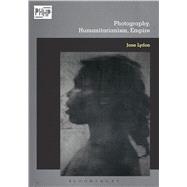With their power to create a sense of proximity and empathy, photographs have long been a crucial means of exchanging ideas between peoples across the globe. This book explores the role of photography in shaping ideas about race and difference from the 1840s to the 1948 Declaration of Human Rights. Focusing on Australian experience in a global context, a rich selection of case studies show how photographic encounters between Aboriginals, missionaries, scientists, photographers and writers fuelled international debates about morality, law, politics and human rights.
While the camera has been extensively analysed as a weapon of authority, surveillance and control, this volume uncovers a story of photography as a more complex social force. Drawing on new archival research, it is essential reading for students and scholars of race, visuality and the histories of empire and human rights.









